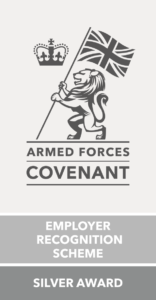Design and Development for Engineering & Manufacturing – T Level
Our Design and Development for Engineering & Manufacturing T Level will help you on your way to your chosen career in Engineering Design.
Our T Level in Design and Development for Engineering & Manufacturing will provide you with the knowledge you need to work within Engineering Design.
Our course offers traditional learning as well as hands-on experience working within the Engineering world.
The T Level in Design and Development for Engineering & Manufacturing is the equivalent of 3 A Levels.
What is a T Level?
A T Level combines classroom learning with work experience placements. This will help to develop a more rounder understanding of your chosen career. We work closely with employers to help find the perfect placement for you. You will spend 80% of your time in the classroom which will be a combination of traditional learning as well as practical experience. The remaining 20% will be spend out in the industry refining your skills. T Levels do carry UCAS points with them so you can still study at degree level afterwards.
The Design and Development for Engineering & Manufacturing T Level will be led by our Head of Engineering, Claire Reet along with the rest of her team.
What facilities do you have at ENL UTC to study the Design & Development for Engineering & Manufacturing T Level?
We’ve received £1 million of funding to provide T Levels. We have state of the art equipment to help us deliver this new exciting course.
Who is the course aimed at?
The course is aimed at Students who wish to follow a career within the Engineering Design.
What will I learn?
- Working within the Engineering and Manufacturing Sectors – an understanding of how materials, conditions and context influence design processes and products
- Essential mathematics for engineering and manufacturing – a knowledge and understanding of mathematics including standard matrices and determinants and standard trigonometry
- Materials and their properties – understanding material processing techniques and their effects on materials and material quality, the condition of materials, how these are managed, and materials testing methods and techniques
- Business, commercial and financial awareness – basic commercial principles including commercial priorities and markets, customers/clients/partners and resource allocation
What are the Entry Requirements?
You will need a Grade 5 or above in English & Maths along with an Engineering related subject eg. Design & Technology.
What career can I have afterwards?
- Mechanical Engineer
- Electrical & Electronic Engineer
- Control & Instrumentation Engineer
- Structural Engineer and many more!


